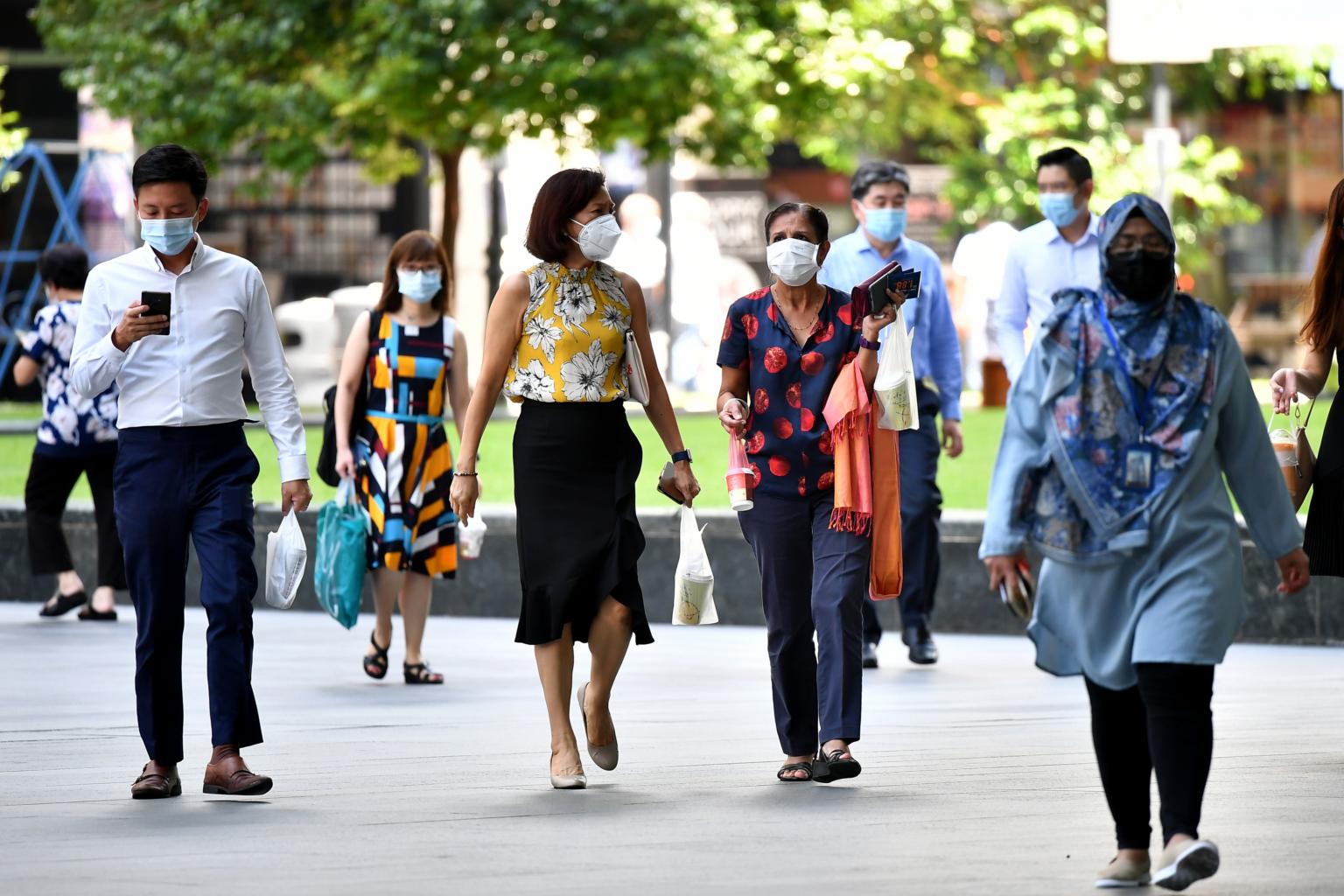Singapore workers see less discrimination at workplace, job search: Poll
Sign up now: Get ST's newsletters delivered to your inbox

The proportion of those who reported discrimination during their job search fell from 43 per cent to 25 per cent.
PHOTO: ST FILE
Follow topic:
SINGAPORE - Singaporeans and permanent residents in the labour force reported less discrimination both at the workplace and during the job search compared with 2018.
The proportion of resident employees who cited workplace discrimination fell from 24 per cent in 2018, when the survey was last conducted, to 8 per cent last year, according to a survey by the Ministry of Manpower (MOM).
The proportion of those who reported discrimination during their job search fell from 43 per cent to 25 per cent.
The survey, which saw around 3,000 respondents respond to questionnaires online and by post, e-mail or fax between last September and November, found that the most common form of discrimination was age, both at the workplace and during the job search - with applicants above 40 bearing the brunt.
Four in five who experienced workplace discrimination kept silent, most commonly citing the fear of being marginalised at work or making work relations awkward (18.9 per cent), feeling that the issue was not severe enough (15.4 per cent) and the worry over impact on future job opportunities (15 per cent).
Most of the remaining one in five who sought help - or around 79 per cent - did so by reporting instances of perceived discrimination to their organisation or union.
Meanwhile, 16 per cent sought informal help from their family, and just under 5 per cent from tripartite agencies such as the Tripartite Alliance for Fair and Progressive Employment Practices (Tafep).
Discrimination based on pregnancy status saw the greatest decline between 2018 and last year, from something experienced by more than two in 10 job applicants to fewer than one in 20.
In a briefing on the survey results, Mr Ang Boon Heng, director of MOM’s manpower research and statistics department, said two reasons for the dip in reported discrimination are increased awareness of fair workplace practices and a tighter labour market.
Discrimination by mental health condition during the job search was a new category in the latest iteration of the survey.
Said Mr Ang: “In the last year, there has been a lot more awareness and interest in mental health and we wanted to see what is the reaction from employers.”
Discrimination by mental health condition during the job search was a new category in the latest iteration of the survey.
Said Mr Ang: “In the last year, there has been a lot more awareness and interest in mental health and we wanted to see what is the reaction from employers.”
Just under 3 per cent of job seekers reported discrimination due to their mental health conditions.
Government feedback unit Reach held a dialogue between workers and a panel on Tuesday (March 22) about the state of workplace fairness legislation in Singapore.
Panellists included Senior Minister of State for Manpower Koh Poh Koon; Mr Patrick Tay, assistant secretary-general at the National Trades Union Congress; Ms Kohe Hasan, lawyer and council member of the Singapore National Employers Federation (Snef); and Mr Edwin Ng, Snef honorary secretary and managing director of a printing company.
In his opening remarks at the panel discussion, Dr Koh said the results of the survey would inform the ongoing work of the Tripartite Committee on Workplace Fairness.
He added that the committee, which is looking into enshrining the Tripartite Guidelines on Fair Employment Practices into law, aims to complete its work by the end of this year.
Noting that only one in two employees reported that his or her employer has formal processes to seek redress for discrimination, Dr Koh said the tripartite committee is considering ways to ensure grievance handling procedures are in place in as many companies as possible, either by encouraging them to set up such processes or draw attention to existing ways.
"Clearly, we need to put in place measures to ensure a safe environment, where people can feel comfortable coming forward to report this complaint of discrimination," said Dr Koh of the four in five workers who kept silent after facing discrimination.
But he also cautioned of the need to strike a balance between employees' and employers' interests.
"Even as we look at enshrining the guidelines into legislation, what we don't want to do is to end up with a litigious workplace culture... we want to make sure mediation remains at the forefront."
There were 8,697 employment claims and appeals lodged with MOM and the Tripartite Alliance for Dispute Management, which offers advisory and mediation services for some employment disputes, in 2020, according to MOM's latest employment standards report published last July.

